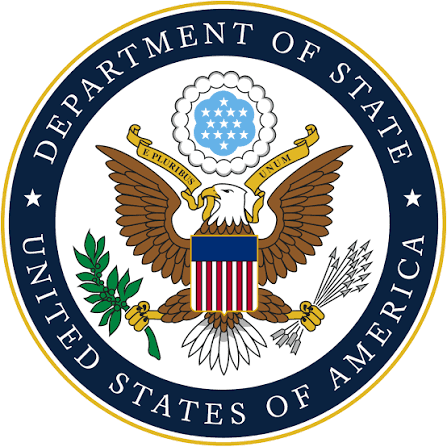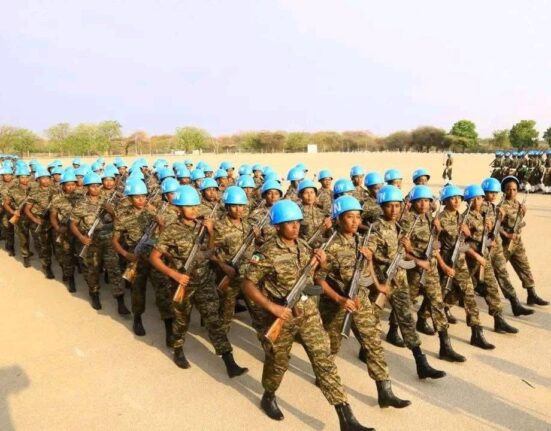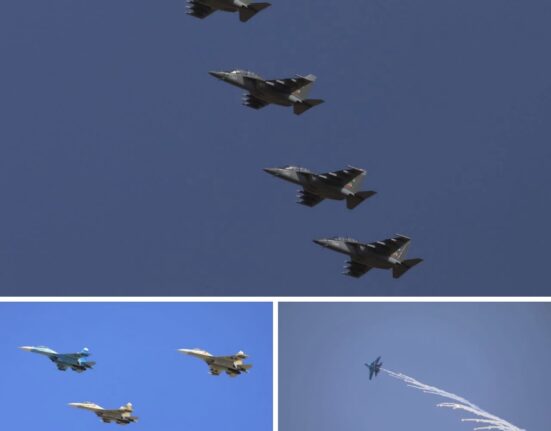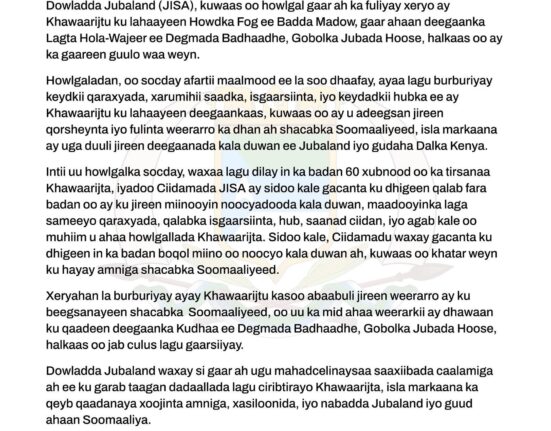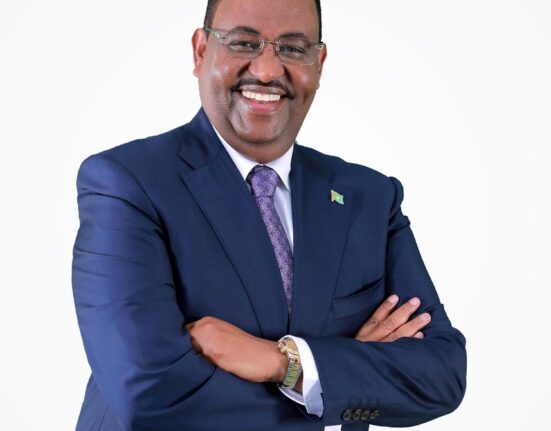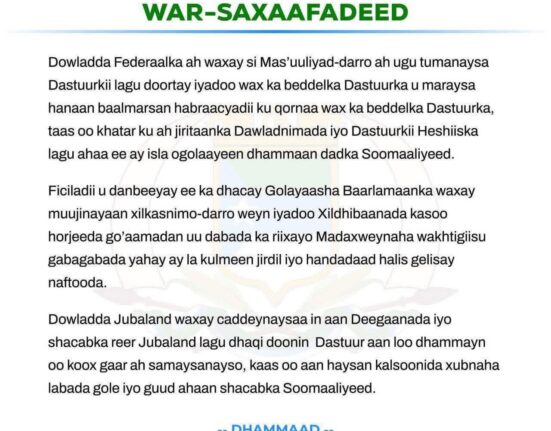By. Abdirezak Sahane Elmi
Former government official and Write and HoA geopolitical analyst
The recent U.S. State Department investment report on Ethiopia, masked under the language of “economic analysis” and “business climate assessment,” is in fact a direct interference in Ethiopia’s sovereignty, a manipulation of our internal development priorities, and a clear reflection of America’s desire to protect only its national interests while undermining the genuine progress of Ethiopia.
1. America Pretends Concern but Pursues Only Its Interests:
The report begins by acknowledging Ethiopia’s demographic and geographic advantages:
- “a large youthful population,”
- “low-cost labor,”
- “growing consumer markets,”
- “Ethiopian Airlines’ global dominance.”
Yet immediately after listing these strengths, the report quickly shifts to complaints about how Ethiopia’s system is an “obstacle” to American investors. This is not about Ethiopia’s development. It is about America’s profits.
If Ethiopia is a sovereign country, why should our entire economic and political system be rewritten to satisfy the comfort of American corporations? Why is “low-cost labor” highlighted as an advantage—do they want Ethiopians to remain cheap workers for foreign profit?
2. Selective Criticism While Ignoring Achievements
If the U.S. genuinely cared about Ethiopia’s growth, why does their report not mention even one single success of our government and people?
- Not a word about the Green Legacy program that planted billions of trees.
- Not a word about wheat self-sufficiency—a historic achievement in Africa.
- Not a word about the completion of GERD, a project of African pride.
- Not a word about city modernization, roads, and new housing projects that have transformed Addis Ababa and other regions.
Why? Because America is not here to celebrate Ethiopian progress. They are here to delegitimize it, to paint it as “obstacle” and “risk” to their investors.
3. Corridor Development: America Calls Progress ‘Destruction’
The report calls Ethiopia’s corridor development projects, which employ thousands of citizens, open infrastructure, and modernize cities, “expulsions” and “demolitions.” They portray Ethiopia’s effort to build modern urban centers as chaos.
Let us ask: If Ethiopia does not build roads, cities, and industries, who will? Why is it that when China, UAE, or Turkey invests in Ethiopia, America calls it “problematic,” but when America wants to invest, it demands special treatment?
Is the real issue human rights, or the fact that America is being outcompeted by non-Western partners in Ethiopia?
4. Dictating Our Policies While Hiding Their Own Failures
The U.S. criticizes Ethiopia for:
- floating the birr,
- debt negotiations,
- protecting land under constitutional ownership,
- maintaining SOEs like Ethiopian Airlines.
But let us ask them: Did Ethiopia ever dictate how the U.S. Federal Reserve should regulate the dollar? Did we ever tell Washington how to run their failing banking system during the 2008 crisis? Did we ever send a report criticizing America’s homeless crisis, racial inequality, and gun violence?
No. Because that would be interference. But America feels entitled to dictate what Ethiopia must do in finance, land, and governance.
5. Sovereignty on Land: Ethiopia Belongs to Ethiopians:
The U.S. attacks Ethiopia’s land policy, saying land ownership belongs to “the people” and is administered by government. But that is Ethiopia’s sovereign choice. We refuse to hand over our ancestral land to foreign corporations.
If America truly respected sovereignty, they would accept that Ethiopia’s Constitution defines land ownership as collective. Instead, they call it an “obstacle.” Whose obstacle? Ethiopians’ right to protect their heritage, or American investors’ hunger for land grabs?
6. Political Manipulation Disguised as Concern:
The report repeatedly blames Ethiopia’s government for conflict in Amhara and Oromia. It accuses Ethiopia of human rights abuses while presenting opposition groups as “victims.” Yet these very opposition groups are often financed, trained, or politically shielded by Western networks.
We must ask: Why is the U.S. more concerned with empowering opposition actors than respecting Ethiopia’s elected leadership? Because their strategy has always been: divide, weaken, then control.
7. The Illusion of Friendship
The U.S. says it wants Ethiopia’s “stability” and “growth.” But history tells us otherwise. From colonial times to today, Western powers, including America, have stood against Ethiopian self-determination. They do not want Africa to be self-sufficient. They want us dependent, divided, and submissive.
Let us be clear: America is not our friend. They are our historical enemy, not only Ethiopia’s, but Africa’s. They come with smiles, reports, and “investment advice,” but behind it lies exploitation.
8. Our Message to Ethiopians
Ethiopians must wake up. We are not children to be lectured by Washington. We are not students waiting for foreign “professors” to tell us how to govern.
Yes, Ethiopia has problems. Yes, we face poverty, instability, and political challenges. But let us not forget: much of our suffering is the direct result of foreign meddling, IMF traps, sanctions, and Western-backed opposition.
We must learn from Burkina Faso’s new path. We must support leaders like Abiy Ahmed when they say “NO” to dictation. The real enemy is not our soil, not our people, but those who wish to control our destiny from abroad.
9. Final Questions for America
- If you claim to support Ethiopia’s development, why do you never mention our successes?
- If you care about democracy, why do you sponsor and shelter opposition groups that destabilize our nation?
- If you respect sovereignty, why do you demand Ethiopia shape its economy to fit U.S. investors’ comfort?
- If you want peace, why have you always stood with forces of division in Africa rather than unity?
Call to Ethiopians:
To my fellow Ethiopians: We are diligent, educated, and capable. We do not need American dictation. We do not need Western interference. We need only one word to free ourselves: NO.
No to exploitation. No to interference. No to false friendship.
Ethiopia belongs to Ethiopians. Africa belongs to Africans. Our destiny will not be written in Washington or Paris. It will be written here, in Addis Ababa, in Mekelle, in Dire Dawa, in Jigjiga, in Gondar, in Oromia, in Afar, in Somali Region, and across our land.
We stand firm. We will rise without them. And we will never again bow to foreign dictation.
By. Abdirezak Sahane Elmi
Former government official and Write and HoA geopolitical analyst
references.


